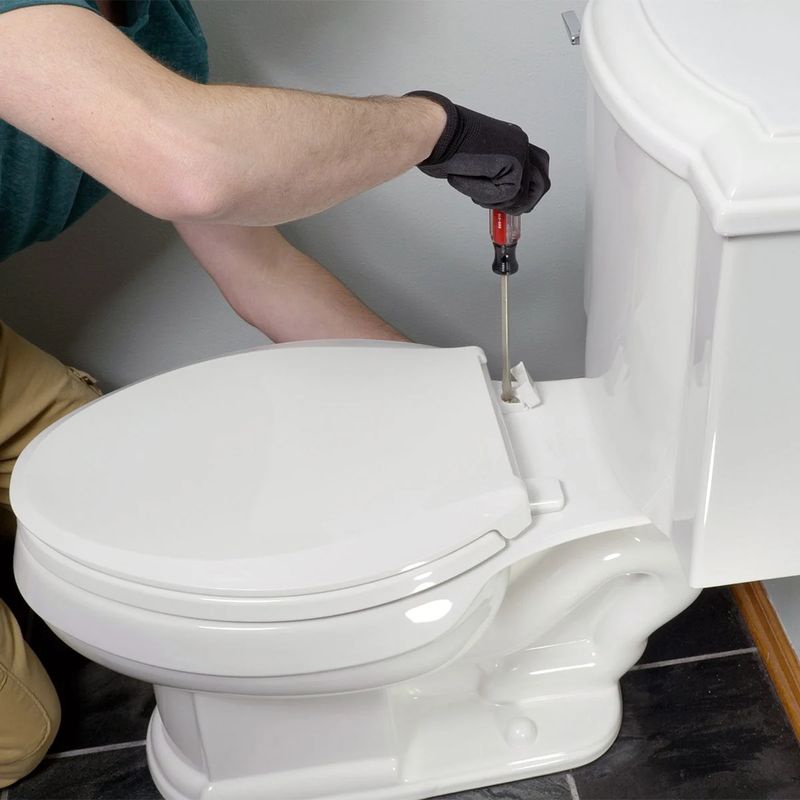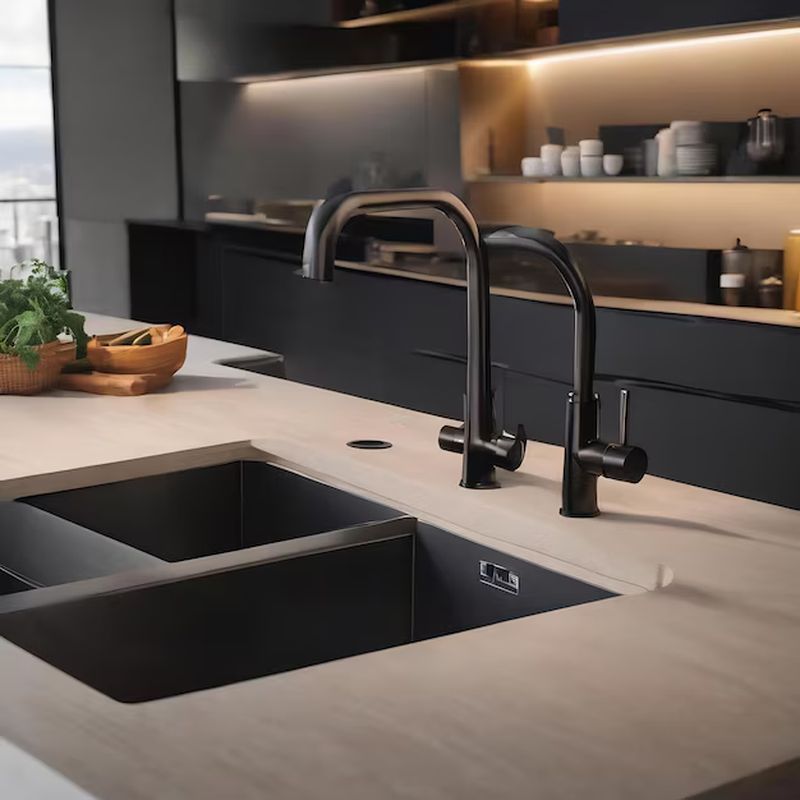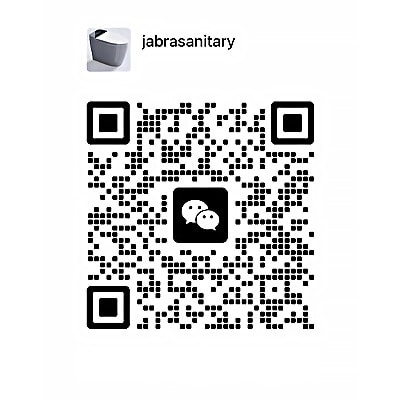 English
English
Jabra Sanitary is a sanitaryware supplier offering toilets, sinks, faucets, bathtubs, etc., at competitive prices. If you're a distributor, wholesaler, or project contractor, get a quote today!
 $23.9 Limited-time Offer
$23.9 Limited-time Offer Consignment Policy
Consignment Policy 20 Years of Experience
20 Years of Experience
If you're wondering how to source sanitary ware from China, you've landed in the right spot! China accounts for 60% of global sanitary ware exports.
We know that sourcing products like toilets, sinks, and bidets can feel overwhelming, especially from halfway worldwide. But here's the good news: many businesses save big by importing directly from sanitary ware manufacturers in China.
And it's not just about the cost. China offers a fantastic mix of quality, variety, and customization that's tough to beat. In this guide, we'll walk you through every step of the process, making it simple and streamlined.
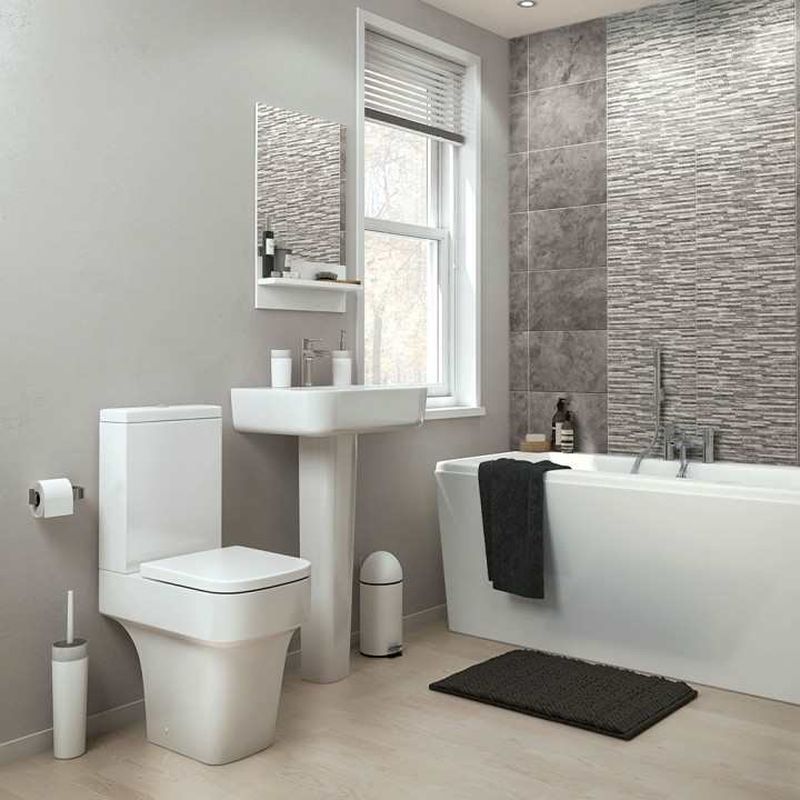
Table of Contents
Why Source Sanitary Ware from China?
How to Find Reputable Sanitary Ware Manufacturers in China
Key Quality Standards for Imported Sanitary Ware
Import Regulations and Compliance
Step-by-Step Guide to Negotiating with China Sanitary Ware Suppliers
Quality Control and Inspection
Logistics and Shipping Considerations
Calculating Import Duties and Taxes for Sanitary Ware
Avoiding Scams When Dealing with Sanitary Ware China Manufacturers
How to Handle Customs Clearance for Sanitary Ware
Post-Import Support: Warranty and After-Sales Service
Case Study: Successful Sanitary Ware Import from China
FAQs
Conclusion
Why Source Sanitary Ware from China?
When it comes to sourcing sanitaryware, China stands out as a top choice for businesses worldwide. But why is that? Let's explore the key reasons that make China the go-to destination for importing toilets, sinks, bidets, and more.
Cost-Effectiveness
First and foremost, one of the biggest advantages of sourcing from China is the cost savings. On average, businesses can save up to 50% compared to buying from local suppliers or other countries.
This big price difference allows businesses to increase their profit margins or offer more competitive prices to their customers.
Diverse Product Range
In addition to saving money, another major benefit is the diverse product range available. China offers an incredible variety of sanitary ware products. Whether you're looking for traditional ceramic toilets, modern stainless steel sinks, or luxurious acrylic bathtubs, you'll find it all.
This diversity means you can cater to different customer preferences and market demands, from budget-friendly options to high-end designs.
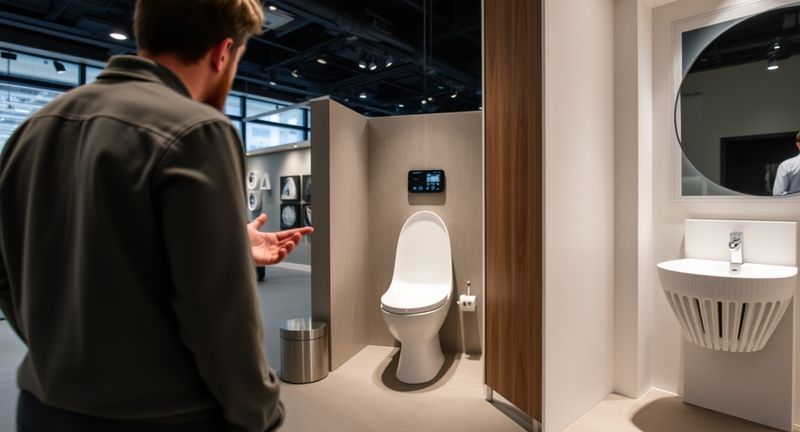
Large Production Capacity
Moreover, China's large production capacity is a significant advantage. The country's manufacturing infrastructure is unmatched, with factories that can produce large quantities of sanitary ware quickly and efficiently.
This means you can place bulk orders without worrying about long lead times.
Customization
Furthermore, many Chinese manufacturers offer customization options, allowing you to create unique products that stand out in the market.
You can request specific colors, designs, or features to match your brand's identity or to meet particular customer needs. This flexibility can give your business a competitive edge.
High Quality Standard
Lastly, it's important to address the high quality standards that reputable Chinese manufacturers maintain. Many factories adhere to international quality standards like ISO 9001 and have certifications to prove it.
By choosing the right manufacturers, you can ensure that your sanitaryware meets or exceeds industry standards.
How to Find Reputable Sanitary Ware Manufacturers in China
Finding reputable sanitaryware manufacturers in China is essential to secure high-quality products at competitive prices. Follow these effective strategies to ensure you partner with reliable suppliers.
Online Platforms
Online platforms are an excellent starting point for your search. Websites such as Alibaba, Made-in-China, and Global Sources feature thousands of suppliers.
However, not all are trustworthy. To narrow your options, filter for verified suppliers. Look for designations like:
- Gold Supplier on Alibaba
- Audited Supplier on Global Sources
These badges indicate that the china sanitaryware supplier has undergone platform verification, increasing their credibility.
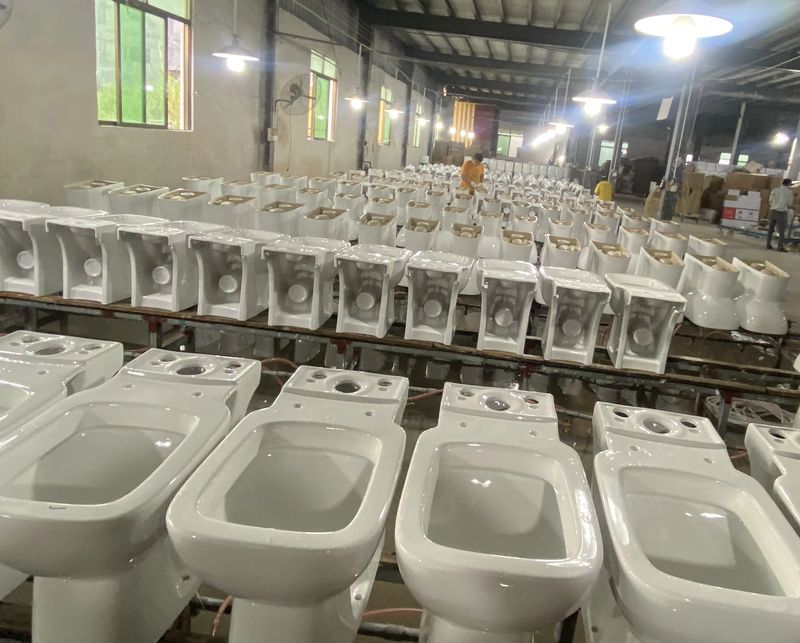
Or turn to online brand sites like jabrasanitary.com:
Jabra Sanitary is a sanitary ware manufacturer that provides instant online quotation requests on its website, enabling you to secure discounted pricing for their precision-crafted bathroom fixtures, including showers, ceramic basins, and smart toilets.
Ask for Referrals
Another valuable approach is asking for referrals. If you know businesses that have successfully imported sanitary ware from China, reach out to them for recommendations.
Personal referrals often connect you with more reliable suppliers, as they come from trusted, firsthand experiences.
Trade Shows and Exhibitions
Attending trade shows and exhibitions offers a unique opportunity to meet manufacturers face-to-face. Key events like the Canton Fair or the China International Bathroom Expo let you:
- Inspect products in person
- Engage directly with suppliers
- Begin building relationships
These interactions allow you to assess supplier credibility and evaluate product quality on the spot.
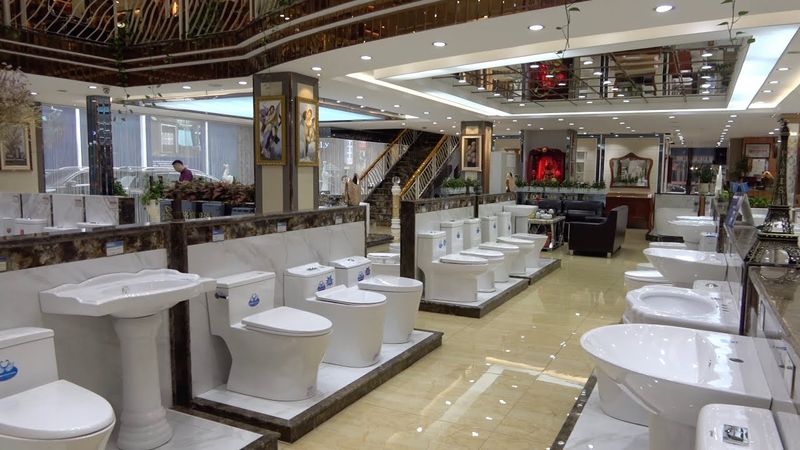
Vetting Tips
After shortlisting potential china sanitaryware suppliers, vet them carefully to confirm their reliability. Use these practical tips:
- Request certifications: Ask for internationally recognized certifications such as ISO 9001(quality management), CE (European conformity), or WaterSense (water efficiency).
- Check supplier reviews: Explore feedback on platforms like Trustpilot or Google Reviews. Focus on comments from buyers in your target market for relevant insights.
- Ask for client references: Request contact details for 3–5 clients in your region. Reach out to them to inquire about their experiences with the supplier, including product quality, delivery reliability, and customer service.
Key Quality Standards for Imported Sanitary Ware
When importing sanitary ware from China, understanding the key quality standards is crucial to ensure you receive durable, safe, and compliant products.
Ceramics
For ceramic sanitary ware like toilets and sinks, two main quality standards are critical:
- Water Absorption Rate: This should be ≤ 0.5% according to international standards like EN 997 (Europe) for toilets or ASME A112.19.2 (North America). A low water absorption rate means the ceramic doesn't soak up too much water, which helps prevent cracks and ensures the product lasts longer.
- Glaze Thickness: The glaze, or the shiny protective layer on ceramics, should be ≥ 0.7mm for durability. A thicker glaze protects the ceramic from scratches and stains, keeping it looking new for years.
Faucets
For faucets, the following standards are essential, especially for markets like the US and EU:
- Lead-Free: Faucets must be lead-free to meet safety standards such as NSF/ANSI 61. This ensures the water remains safe to use and drink, as lead can be harmful if it leaches into the water supply.
- Pressure Tolerance: Faucets should handle ≥ 0.6MPa of water pressure. This means the faucet can withstand high water pressure without leaking or breaking, ensuring long-term reliability.
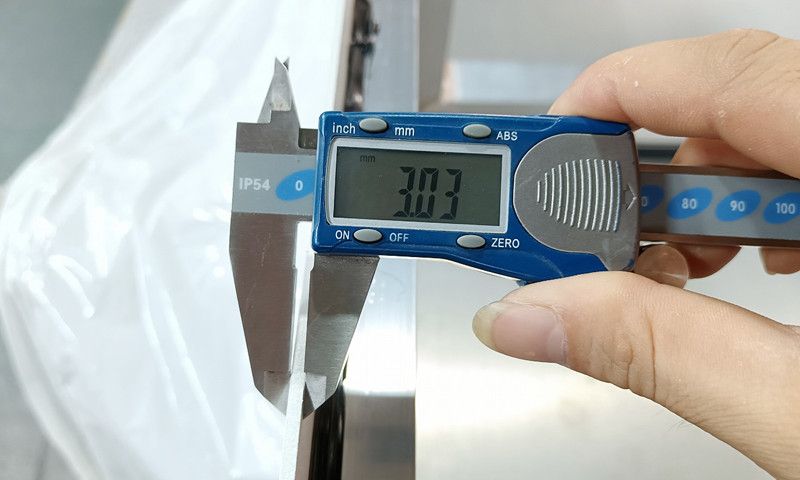
Import Regulations and Compliance
When you import sanitary ware from China, you need to follow certain rules to get your products into your country legally and safely.
Customs Clearance
Customs clearance is the process of getting your goods approved by the customs office when they arrive in your country. It's like showing your "passport" for your products. To do this, you need to submit some important documents.
Here's what you'll usually need:
- Commercial Invoice: Think of this as your receipt. It shows the value of your sanitary ware, helping customs calculate duties.
- Packing List: This is like a checklist. It details what's inside—how many items, their weight, and package sizes.
- Bill of Lading (for sea) or Air Waybill (for air): This is your shipping contract and proof of pickup, packed with shipment details.
- CE/RoHS Certificates (for EU imports): These prove your products meet EU safety and environmental standards—essential for Europe.
If your paperwork isn't correct or complete, your goods might get stuck at customs, which can cost you time and money. So, double-check everything!
Tip: Hire a customs broker or freight forwarder. They're experts who can help you with the paperwork and make sure the process goes smoothly.
Product Standards
Every country has its product standards, which are rules that sanitary ware (like toilets, sinks, or faucets) must follow to be sold. These rules make sure the products are safe, work well, and don't harm the environment. For example:
- In the United States, toilets must follow WaterSense rules to save water and can't have too much lead.
- In the European Union, products need a CE marking to show they meet safety and environmental standards.
Before you import, check your country's specific rules. If your products don't meet these standards, they could be stopped at the border or even taken off the market later.
Tip: Look up your country's standards on government or industry websites. You can also ask your supplier for proof (like certificates) that their products meet these rules.
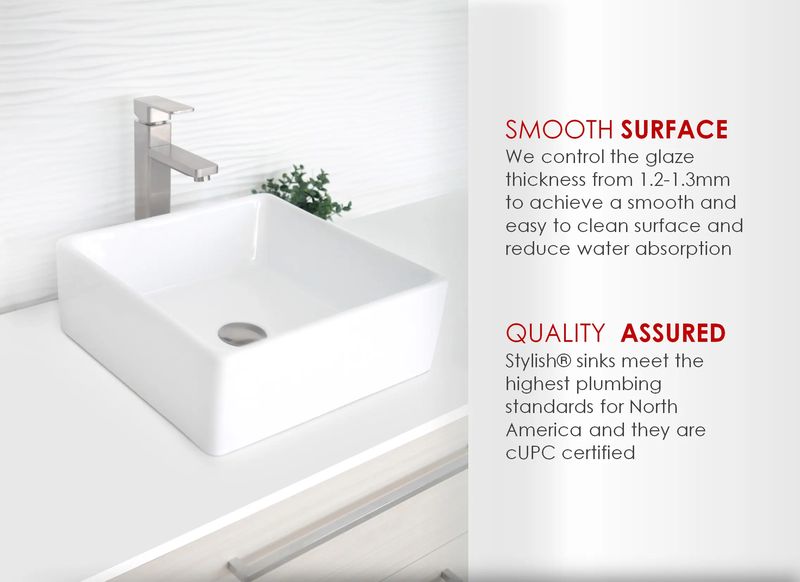
Tariffs and Duties
Tariffs and duties are taxes you pay when you bring goods into your country. The amount you pay depends on what you're importing and where it's coming from. For sanitary ware, these taxes can make your products more expensive, so you need to plan for them.
Tip: Use online tariff calculators or talk to a trade expert to figure out how much you'll owe.
Step-by-Step Guide to Negotiating with China Sanitary Ware Suppliers
Negotiating with China sanitary ware suppliers is a crucial step to secure the best deal and build a strong partnership. Don't worry—we've got you covered!
Follow these steps, and you'll be negotiating like a pro in no time.
1. MOQs: Typical MOQs for Sanitary Ware
MOQ stands for Minimum Order Quantity, the smallest number of units a supplier will sell in one order. MOQs matter because they help suppliers cover production costs, but they can vary depending on the product. Here are some typical examples of sanitary ware:
- Ceramic toilets: Around 100–200 units
- Faucets: Often 500–1,000 units
- Sinks: Usually 50–100 units
These numbers aren't fixed—some suppliers might lower the MOQ for a trial order if you ask nicely. It's a great way to test their quality without committing to a huge purchase.
Tip: Ask about MOQs upfront to see if they match your budget or needs. For example, say, "Can you lower the MOQ for a first-time order?"
2. Price Negotiation: Compare Prices from Multiple Suppliers
Getting a fair price takes a little work, but it's worth it. Here's how to negotiate effectively:
- Request quotes from at least three suppliers. This helps you understand the market rate and spot a good deal.
- Stay polite and respectful. A good relationship can lead to better prices and terms down the road.
- Use your research to bargain. If one sanitary ware manufacturer in China offers $50 per toilet and another quotes $45, tell the first supplier, "I've seen similar products for $45—can you match that?"
Tip: Be ready to walk away if the price isn't right. There are plenty of suppliers out there!
3. Discounts: Negotiate Discounts for Bulk Orders
Suppliers often reward bigger orders with discounts, so don't hesitate to ask! Here's what to look for:
- Bulk order discounts: Ordering 500 units instead of 100 might get you a 10% discount.
- Seasonal deals: Some china sanitary waresuppliers offer promotions during slower months—ask if there's anything available.
Even if discounts aren't mentioned, you can still negotiate. Try asking, "Do you offer a discount for larger orders?" or "Are there any current promotions?"
Tip: Settle on the base price first, then negotiate discounts to maximize your savings.
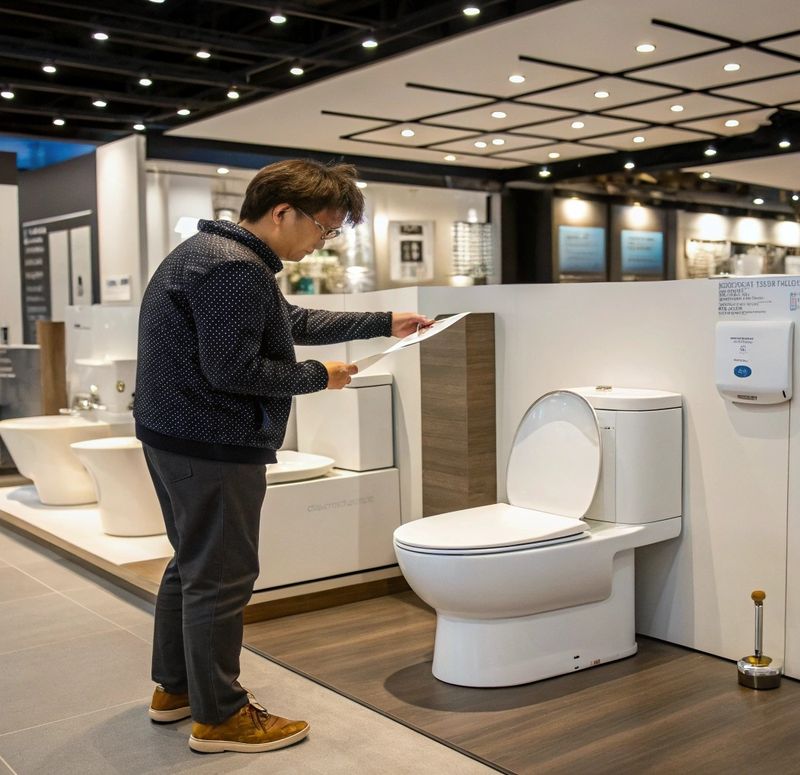
5. Payment Terms: Discuss Payment Terms Like L/C or T/T
Payment terms define how and when you pay. Two common methods are:
- Letter of Credit (L/C): A secure option where your bank guarantees payment once the supplier provides documents (like a shipping receipt). It's safer but slower and may involve fees.
- Telegraphic Transfer (T/T): A direct bank transfer, which is quick but riskier if you don't fully trust the supplier.
A popular arrangement is a 30% deposit upfront and 70% upon delivery. This balances risk for both sides. For small orders with trusted china sanitary ware suppliers, T/T might work fine, but for bigger deals, consider an L/C.
Tip: Match the payment method to your comfort level—start with T/T for small orders and switch to L/C as orders grow.
6. Contract Clauses: Include Penalties for Delays and Quality Guarantees
A strong contract keeps everything on track. Here are the must-have clauses:
- Penalties for delays: Add a fee, like $50 per day, if delivery is late. This motivates suppliers to ship on time.
- Quality guarantees: Specify that products must meet standards (e.g., ISO 9001 or your country's rules). If they don't, the supplier should replace them or refund you.
For big orders or if you're new to importing, have a lawyer review the contract to catch any gaps.
Tip: Be clear in the contract—say exactly what "on time" and "good quality" mean to avoid disputes.
Quality Control and Inspection
When importing sanitary ware from China, quality control and inspection are critical steps to ensure you get products that meet your expectations and comply with the necessary standards. These processes help you avoid headaches like receiving defective items or dealing with unhappy customers.
Pre-Shipment Inspections
Pre-shipment inspections happen before the products leave the supplier's factory, and they're a must-do to catch any issues early. During these inspections, a sample of your sanitary ware—like toilets, sinks, or faucets—is checked for:
- Defects: Think cracks, uneven finishes, or chipped edges.
- Functionality: Do the faucets turn on and off properly? Does the toilet flush as it should?
- Compliance: Are the dimensions, colors, and features exactly what you ordered?
Practical Tip: Ask for a detailed inspection report with photos. It's your proof that everything was checked properly.

Third-Party Inspectors
For an unbiased quality check, bring in a third-party inspector like SGS or AsiaInspection. These are independent pros who know their stuff when it comes to sanitary ware. They'll dig into the details, performing tasks like:
- Visual checks: Spotting scratches, dents, or poor glazing.
- Measurements: Confirming the sink is the right size or the toilet fits your specs.
- Functional tests: Making sure everything works as promised.
Quick Tip: For big orders, the extra cost of a third-party inspector is worth it for the peace of mind.
Product Testing
Product testing ensures your sanitary ware is safe, durable, and efficient. This step is all about making sure the products can handle real-world use and meet regulations in your country. Here's what testing might look like for sanitary ware:
- Toilets: Checked for water efficiency(e.g., meeting WaterSense standards) and durability (no cracking under pressure).
- Faucets: Tested for lead content(to follow safety rules like NSF/ANSI 61) and pressure resistance (no leaks!).
- Ceramic sinks: Inspected for glaze quality and water absorption to ensure they last and look good over time.
Logistics and Shipping Considerations
Choosing the right shipping methods, considering insurance, and working with experienced logistics partners can make your import experience.
Shipping Methods
You have two main options for shipping sanitary ware from China: sea freight and air freight.
- Sea Freight: This is the go-to choice for bulk orders because it's cost-effective. For example, shipping a full container of toilets by sea might cost $2,000.
- Air Freight: If you need your products quickly, air freight is faster, delivering in about a week.
For sea freight, you also need to choose between FCL (Full Container Load) and LCL (Less than Container Load):
- FCL: You fill an entire container with your goods. This is ideal for sanitary ware because there's less handling, which reduces the risk of damage.FCL shipping: $2,500 for 20ft container.
- LCL: Your goods share a container with other shipments. While it's cheaper for small orders, there's more handling, which can lead to breakage—especially for fragile items like ceramic sinks or toilets.
Practical Tip: Always opt for FCL when possible to protect your sanitary ware. It's worth the extra cost to avoid damage.
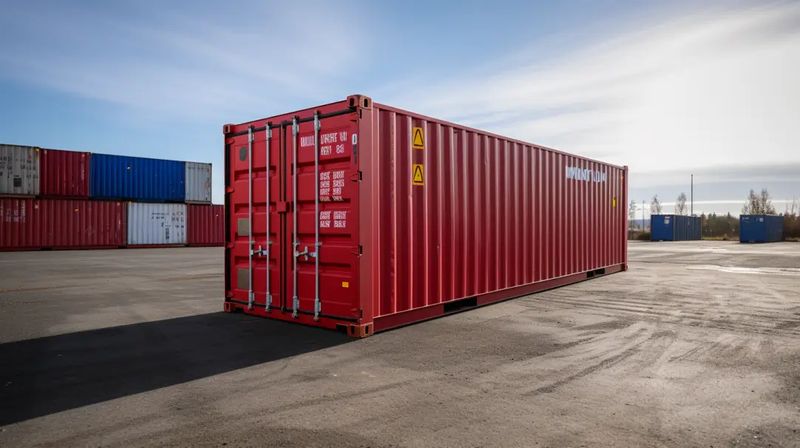
Insurance
Sanitary ware, especially ceramic items, can be fragile. That's why it's smart to consider insuring your shipments against damage or loss. It's especially important for high-value or large orders.
For example, if you're importing $20,000 worth of faucets, paying a small insurance fee (usually 1–2% of the shipment value) can save you a lot of stress if something breaks.
Freight Forwarders
Freight forwarders are logistics experts who handle the shipping process for you. They book cargo space, arrange transportation, and manage customs paperwork. Using an experienced freight forwarder can save you time and stress, especially if you're new to importing.
They know the ins and outs of shipping from China and can help you avoid common pitfalls, like missing documents or choosing the wrong shipping method.
How to Choose One: Look for freight forwarders with experience in shipping sanitary ware or fragile goods. You can find them through recommendations, online directories, or platforms like Alibaba Logistics or DHL Global Forwarding.
Calculating Import Duties and Taxes for Sanitary Ware
Calculating import duties and taxes is a crucial step in the importing process. These costs can significantly impact your overall expenses, so it's important to understand how they work and how to calculate them accurately.
HS Codes
Every product imported into a country is classified under a Harmonized System (HS) code. For sanitary ware, different items like toilets, sinks, and faucets have specific HS codes. For example:
- Ceramic toilets: Typically under HS code 10
- Metal faucets: Often under 80
To find the right code, check your country's customs website or use online HS code lookup tools.
Calculating Duties
Once you have the correct HS code, you can look up the duty rate for that code in your country's tariff schedule. Duty rates are usually a percentage of the product's value. Here's how it works:
- If the duty rate is 5% and your shipment is worth $10,000, you'll pay $500 in duties.
Duty = CIF Value × Duty Rate
Be aware that in many countries, duties are calculated on the CIF (Cost, Insurance, Freight) value, which includes the cost of the goods, insurance, and shipping. So, if your product costs $10,000 and shipping is $1,000, the CIF value is $11,000, and the duty would be 5% of $11,000 = $550.
Practical Tip: Always check if your country uses the CIF value or just the product cost for duty calculations.
Understanding Taxes
In addition to duties, some countries impose taxes like value-added tax (VAT) or sales tax on imported goods. These taxes are often calculated on the sum of the product's value and the duty. For example:
- In the EU, if your product costs $ 10,000 and the duty is $500, a 20% VAT would be applied to $10,500, resulting in $2,100 in VAT.
- In the S., there is no federal VAT, but state sales taxes may apply when the products are sold.
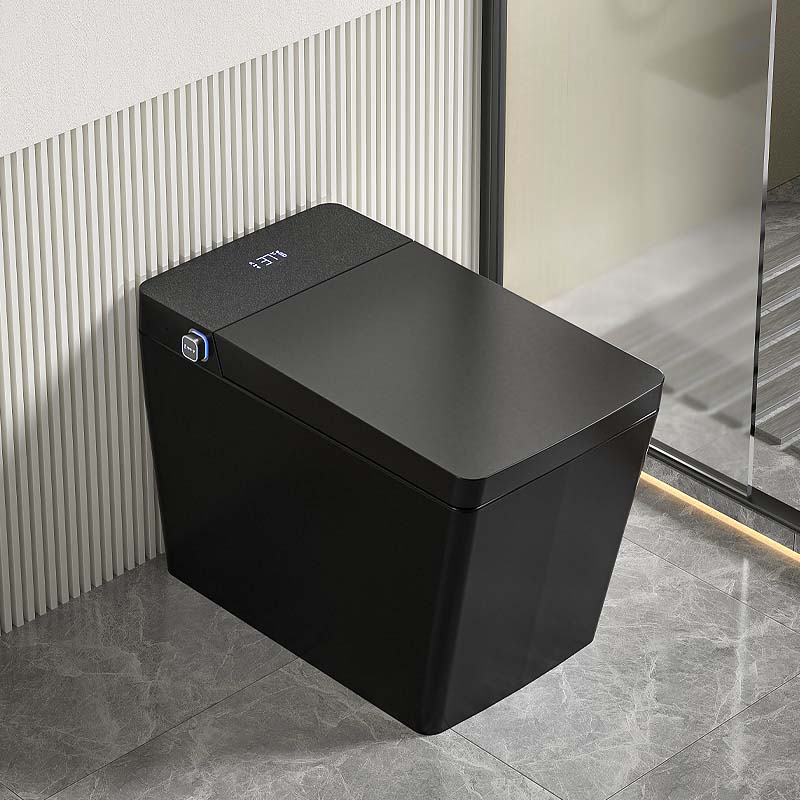 Ads
Ads
Black Tankless Toilet With Bidet
Introducing the black tankless toilet J-2044 Black, the perfect blend of luxury and technology for your bathroom. This black smart toilet is designed with an easy-clean glaze, preventing yellowing and creating an anti-stain barrier, thanks to its nano-scale coating and high-temperature firing at 1280°C.
Avoiding Scams When Dealing with Sanitary Ware China Manufacturers
It's important to be aware of potential scams that could cost you time and money. In this section, we'll share practical tips to help you avoid scams and find trustworthy China sanitary ware suppliers.
Warning Signs
Here are some red flags to watch out for when dealing with sanitary ware manufacturers in China:
- No factory address on Alibaba's profile: Legitimate suppliers usually provide their factory location. If it's missing, it could be a sign they're not a real sanitary ware manufacturer in China.
- Refusal to provide video calls or live factory tours: If a supplier won't show you their factory via video or in person, they might have something to hide.
- Requests for full payment upfront via Western Union: This is a common scam tactic. Western Union offers little buyer protection, so scammers often prefer it. Trustworthy suppliers typically accept more secure payment methods.
Practical Tip: If you spot any of these red flags, ask more questions or consider looking for another supplier.
Verification Methods
To ensure your supplier is legitimate, follow these verification steps:
- Use supplier visit services: Companies like AsiaInspection can visit the factory on your behalf and provide a detailed report. This is especially helpful if you can't travel to China.
- Confirm business licenses: Use China's National Enterprise Credit Information Publicity System to check if the company is registered. You'll need the supplier's Chinese name or registration number. Since the site is in Chinese, you might need to use translation tools like Google Translate.
Pro Tip: For your first order, start with a small purchase to test the supplier's reliability before committing to a larger deal.
How to Handle Customs Clearance for Sanitary Ware
Handling customs clearance can feel tricky, but we're here to help make it simple. When you import China sanitary ware, customs clearance is the step where your goods pass through your country's border legally.
First, gather the key documents according to Section 5. Next, consider a customs broker. They're experts who know the rules and can handle paperwork, submit documents, and even pay duties for you.
We've seen how they save time and stress, especially for first-timers. Your supplier can also help with the invoice and packing list.
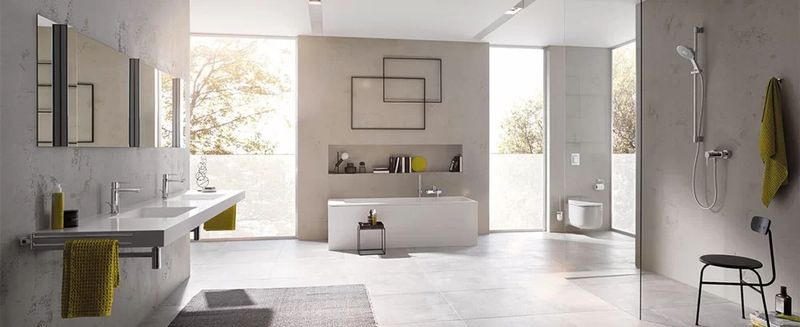
Post-Import Support: Warranty and After-Sales Service
When you import China sanitary ware, getting the products to your doorstep is just the beginning. What happens after matters just as much! That's where post-import support—like warranties and after-sales service—comes in. It keeps your customers happy and your business running smoothly.
First, negotiate a warranty. A warranty is like a safety net—it protects you if something breaks because of a manufacturing mistake, like a cracked sink or a leaky faucet.
For sanitary ware, a minimum 1-year warranty is pretty standard. When you're chatting with your supplier, ask for this clearly and get it in writing. Then, submit photos within 30 days.
Next, make sure spare parts are available. That's a headache you don't want! Ask your supplier, "Do you stock critical parts like faucet cartridges or toilet seals?" Avoid downtime with pre-stocked spare parts.
Finally, team up with local repair crews. Partnering with repair teams near you is a game-changer. They can fix issues fast, which beats waiting for help from far away. Before you import, find local pros and set up a deal.
Case Study: Successful Sanitary Ware Import from China
A UK bathroom retailer aimed to stay competitive by reducing costs and offering better prices. They decided to import 500 ceramic toilets from Chaozhou, China, a region renowned for high-quality sanitary ware.
After carefully vetting options, they selected a supplier with ISO 9001 certification and a proven history of exporting to Europe. The results were striking. Importing from China saved $12,000 on 500 units compared to local suppliers.
After accounting for duties, logistics, and marketing expenses, they achieved a 65% profit margin. This allowed them to lower prices, attract more customers, and boost sales. They faced a minor customs delay due to a paperwork error, but their broker resolved it swiftly.
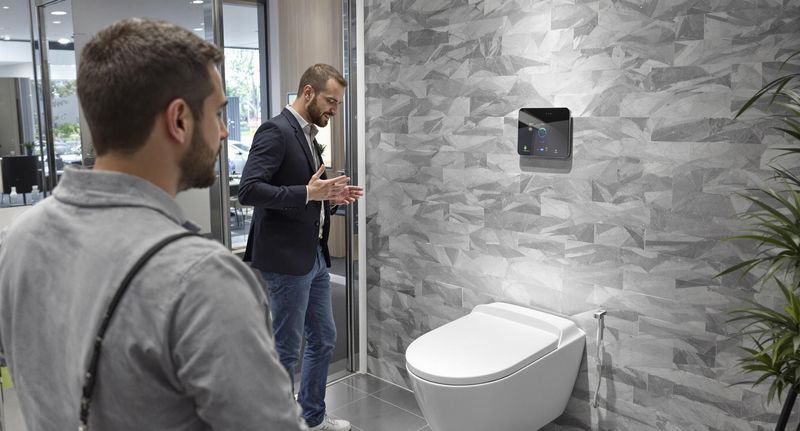
FAQs
Here are answers to common questions about importing sanitary ware from China.
What are sanitary ware items?
Sanitary ware includes essential bathroom fixtures such as toilets, sinks, bathtubs, bidets, and urinals.
Is China a sanitary country?
China is a top producer of sanitary ware, with many manufacturers meeting global standards like ISO 9001. To get the best products, carefully check potential sanitary ware manufacturers in china, look for certifications, and ask for samples before making large orders.
What is the demand for sanitary ware?
Demand for sanitary ware is growing due to more construction, city growth, and a focus on cleanliness. The hotel industry and higher incomes also boost this trend. As people want modern, efficient bathrooms, the market for these products keeps expanding.
Is it safe to purchase from Alibaba?
Yes, but be careful. Choose suppliers with good ratings, verified status, and positive reviews. Order samples first to check quality, and use safe payment methods like escrow to protect your money.
What is the difference between sanitary ware and sanitary fixtures?
Sanitary ware usually means ceramic or porcelain items like toilets and sinks. Sanitary fixtures include a wider range of bathroom items like faucets and showers. Though people sometimes use the terms the same way, sanitary ware often refers to the main bathroom pieces.
Conclusion
Sourcing sanitary ware in china can feel like a big step, but with the right approach, it's a rewarding opportunity to grow your business. Let's wrap up the key takeaways:
- Finding Trusted Suppliers: Explore online platforms, seek referrals, or attend trade shows to connect with reputable manufacturers.
- Prioritize Quality: Look for products meeting standards like ISO or CE, and invest in inspections to avoid headaches down the line.
- Master the Rules :Get familiar with import regulations, duties, and taxes to keep costs predictable and ensure smooth customs clearance.
- Streamline Logistics: Pick the best shipping method for your needs and consider insurance to safeguard your goods.
- Stay Scam-Savvy: Watch out for warning signs like missing factory details or demands for full upfront payment—verify suppliers through trusted channels.
- Plan for After-Sales: Negotiate warranties and team up with local repair services to keep your customers happy post-purchase.
Now it's your turn to act! Partnering with experienced importers or freight forwarders can make the process a breeze.
Partner with trusted experts like Jabra Sanitary! With our expertise in sourcing top-notch sanitary ware from China, we take the stress out of importing so you can focus on what matters—building your business.









